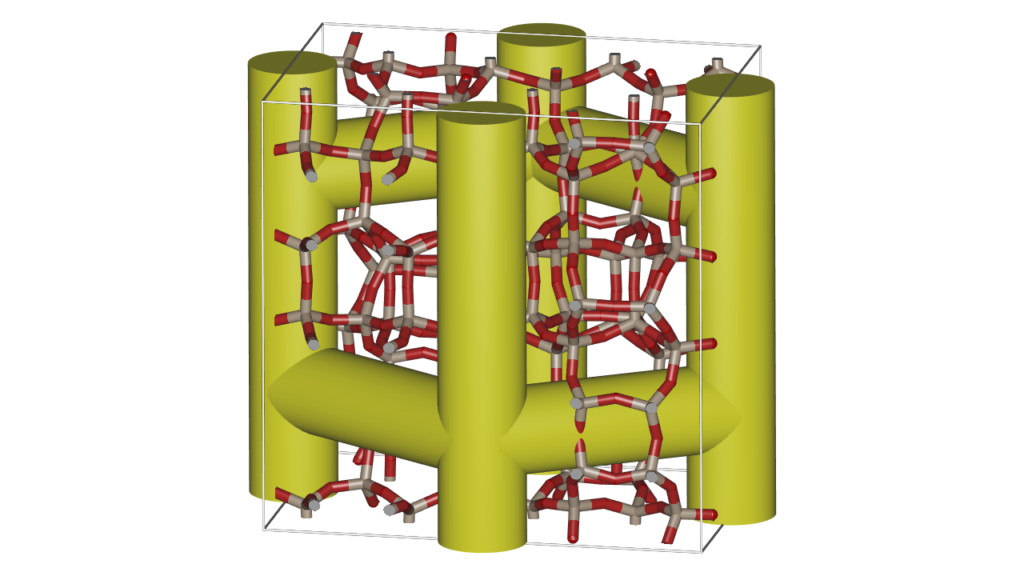The (i)RASPA workshop is held at Delft University of Technology (The Netherlands), 2,3,4 September 2024, just before the start of the Thermodynamics2024 conference in Delft (thermodynamics2024.org). The workshop focuses on a practical understanding of molecular simulations of fluids, ionic liquids, and nanoporous materials and application to practical examples. The duration is 3 days, with morning-lectures and afternoon-exercises.
Registration is now open!
Organizers and lectures:
- Dr. David Dubbeldam
- Dr. Othon Moultos
- Drs. Shrinjay Sharma
- Prof. Randall Q. Snurr
- Prof. Sofía Calero
- Prof. Thijs J.H. Vlugt

Sponsered by Pro2Tech
Pro2Tech is an enabler for Delft’s process and product technology community building and is specifically relevant for young and starting faculty to find their peers and professional home and allow them to work in multi-disciplinary teams with our industrial partners.

Sponsored by DCSE
Computational Science and Engineering (CSE) is rapidly developing field that brings together applied mathematics, engineering and (social) science. DCSE is represented within all eight faculties of TU Delft. About forty research groups and more than three hundred faculty members are connected to, and actively involved in DCSE and its activities. Over 250 PhD students perform research related to computational science.
Program
Preliminary Schedule Monday 2 September 2024 (all times are CET, Central European Time)
| Day 1 Time | Lecturer | Content |
|---|---|---|
| 8.30-9.00 | Registration. | |
| AM Lectures | ||
| 9.00-9.45 | Sofia Calero | Introduction to the course, introduction to the field of molecular simulation. Introduction to simulations: classical simulations, periodic boundary conditions, force field components (charges, VDW interactions, intra-molecular interactions).Introduction to simulations: classical simulations, periodic boundary conditions, force fields (electrostatics, VDW interactions, intramolecular interactions). |
| 9.45-10.15 | Coffee-break | |
| 10.15-11.00 | Randall Snurr | Simulation setup and measuring properties. Introduction to research of nanoporous materials, description of frameworks (IZA, CoRE MOF), simple calculations of pore volume, surface area, blocking pockets. |
| 11.00-11.45 | Randall Snurr | Molecular dynamics (MD) simulation, solving Newton’s equation of motions, NVE and NVT (thermostats). |
| 11.45-12.30 | Sofia Calero | NPT-MD and other ensembles, computing dynamic properties (e.g. diffusion), TST-methodology for rare-events. |
| PM Practical Hands-on Exercises | ||
| 13.30-15.00 | David Dubbeldam | Monte Carlo of methane in a box. |
| Investigation of the structure of frameworks. | ||
| break | Methane in LTA-type zeolite. | |
| 15.30-17.00 | Energy distributions of methane and CO2 in LTA and MFI. | |
| Where is the CO2 located in LTA-type zeolite? | ||
Preliminary Schedule Tuesday 3 September 2024 (all times are CET, Central European Time)
| Day 2 Time | Lecturer | Content |
|---|---|---|
| AM Lectures | ||
| 9.00-10.00 | David Dubbeldam | Molecular dynamics (MD) simulation, solving Newton’s equation of motions, NVE and NVT (thermostats).Overview of the RASPA code, showing the manual, demo running RASPA, for linux, demo of the linux live-usb environment. |
| 10.00-10.30 | Coffee-break | |
| 10.30-11.30 | Othon Moultos | Multi-scale modelling of hydrogen storage. |
| 11.30-12.30 | David Dubbeldam | Visualization (for RASPA with VTK), plotting (gnuplot, plotting output of RASPA), and custom input for RASPA. |
| PM Practical Hands-on Exercises | ||
| 13.30-15.00 | David Dubbeldam | Radial distribution functions (RDF) in a fluid. |
| Self-diffusion in a fluid. | ||
| break | Self- and collective diffusion of methane in MFI. | |
| 15.50-17.00 | Self- and collective diffusion of methane in LTA. | |
| Transition State Theory (TST) for slow diffusion (methane in LTA). | ||
| Advanced simulations of ionic liquids. | ||
Preliminary Schedule Wednesday 4 September 2024 (all times are CET, Central European Time)
| Day 3 Time | Content | |
|---|---|---|
| AM Lectures | ||
| 9.00-10.00 | Randall Snurr | Monte Carlo (MC) simulation, NVT-MC, basic level, Markov chains. |
| 10.00-10.30 | Coffee-break | |
| 10.30-11.30 | Thijs Vlugt | Gibbs and grand-canonical MC, computing isotherms, mixtures, converting fugacity and pressure, IAST. |
| 11.30-12.00 | Thijs Vlugt | Advanced MC techniques, CBMC and CFCMC, use of biasing to enhanced sampling for “difficult systems”. |
| 12.00-12.30 | Shrinjay Sharma | RUPTURA: simulation code for breakthrough, ideal adsorption solution theory computations, and fitting of isotherm models. |
| PM Practical Hands-on Exercises | ||
| 13.30-15.00 | David Dubbeldam | Gibbs simulation of Vapor-Liquid Equilibrium (VLE) of CO2. |
| Computing the helium void-fraction. | ||
| break | Computing adsorption isotherm of CO2 in LTA-type zeolite. | |
| 15.30-17.00 | Computing adsorption isotherms of CO2 in LTA-type zeolite using advanced methods (CFCMC). | |

